We’re excited to introduce you to the always interesting and insightful Megan Medley. We hope you’ll enjoy our conversation with Megan below.
Megan, thanks for taking the time to share your stories with us today What’s been the most meaningful project you’ve worked on?
The project we’re working on is extremely meaningful to me. I started writing the play ‘Without God As My Lover’ directly after we closed the production of the first play I ever wrote which was also our first time producing a fully realized piece of theater. After such an accomplishment and high, I was experiencing a sort of depression. I felt creatively emptied out, dead, like there was nothing else in me. Like I would never be able to make another piece of art. On top of that, there were a lot of dark and difficult things going on in my personal life. I couldn’t shake the conviction that everything was pointless. During that time, I started writing ‘Without God As My Lover’. At it’s heart, the story is about a person looking for hope when there seems to be none in sight. Our protagonist eventually finds it and so did I. It was in writing this person’s journey towards hope that I was able to discover that my own existed. And it was through producing this work with my friends (and making new dear friends in the process) that that hope was realized and felt concrete. ‘Without God As My Lover’ was my little light in the dark and I hope it can be that for others as well.
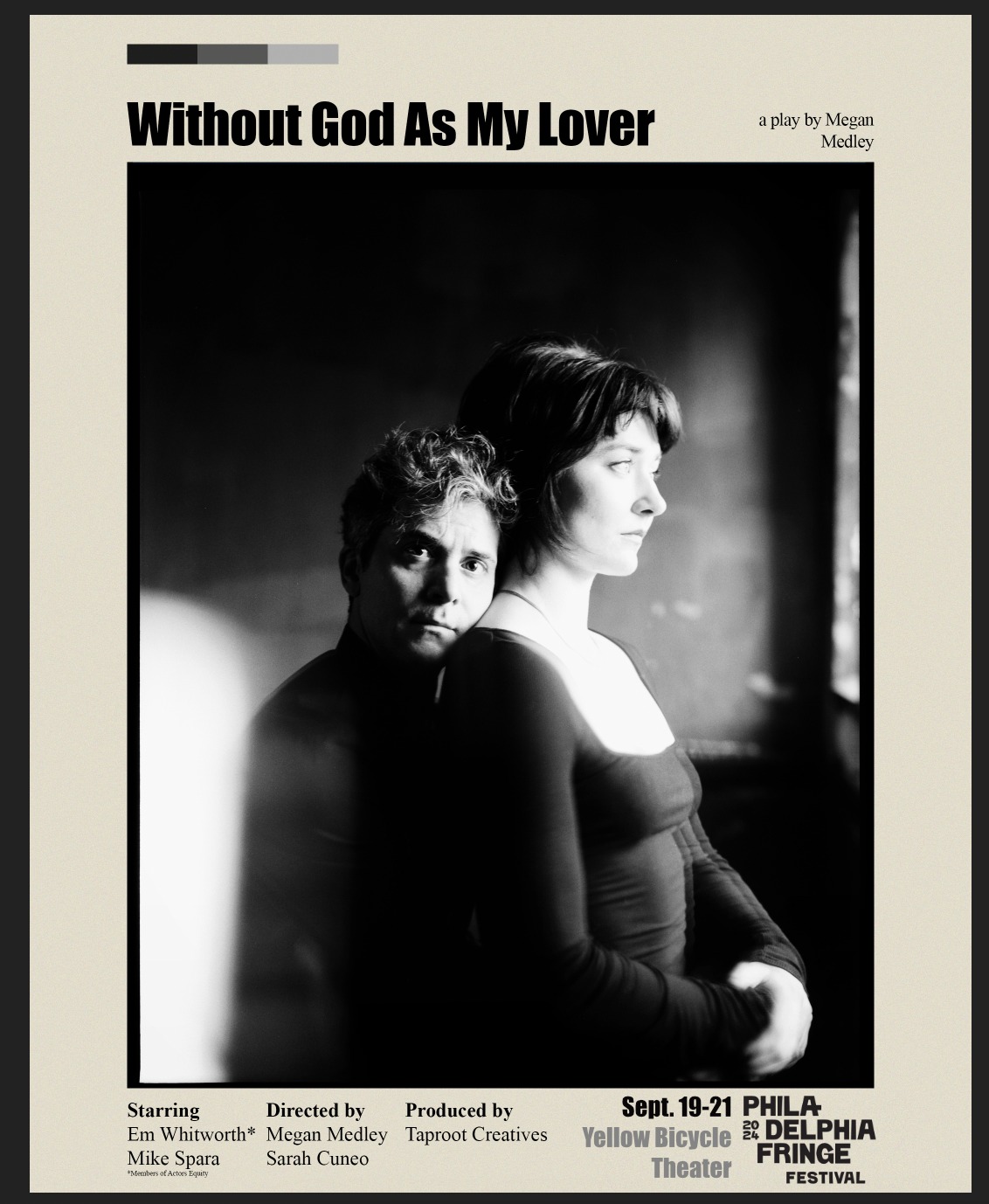
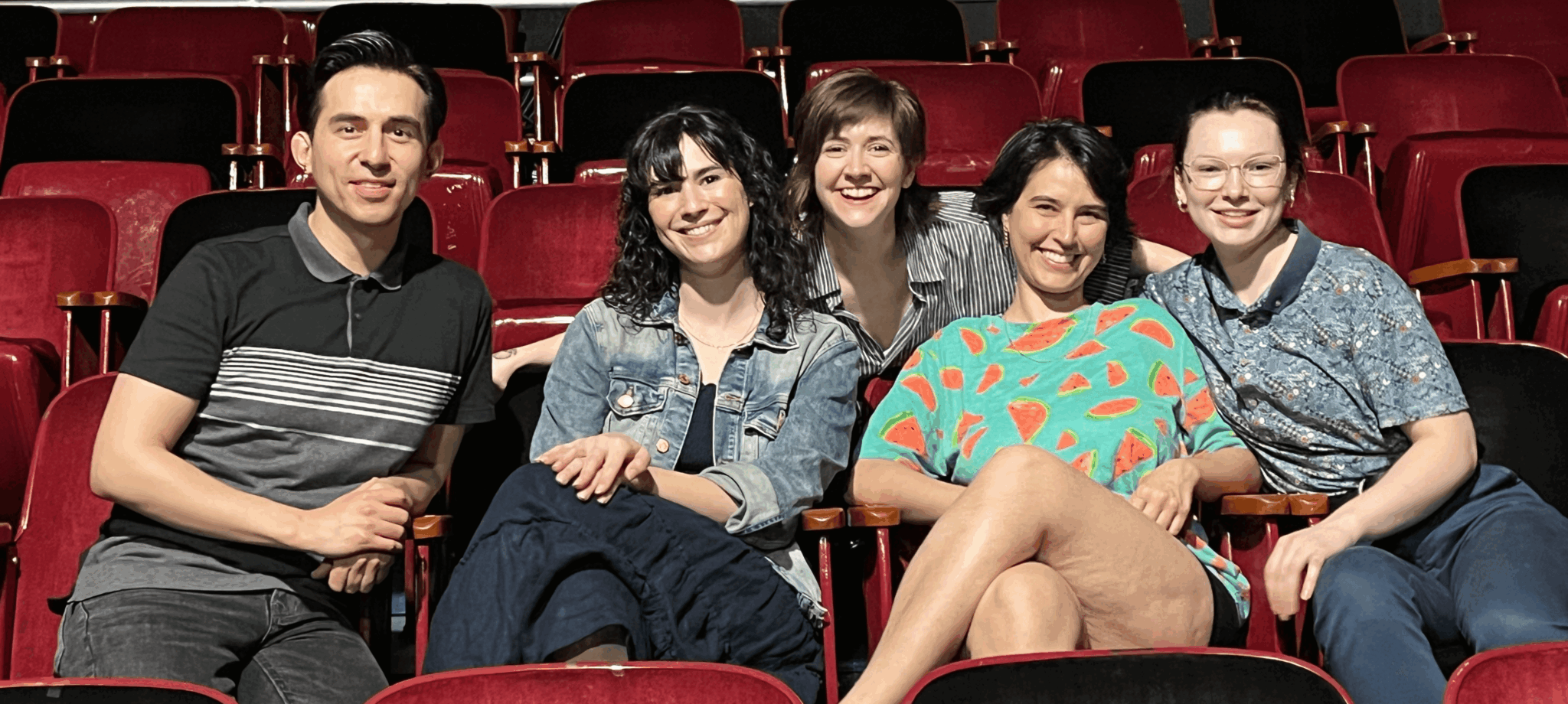
Great, appreciate you sharing that with us. Before we ask you to share more of your insights, can you take a moment to introduce yourself and how you got to where you are today to our readers.
Hi! I’m from Kentucky, daughter of a factory worker and Catholic school teacher. Because of the aforementioned Catholic-teacher-father, I went to Catholic school growing up. Absorbing that culture and then, as it digested, slowly discovering how much harm that ideology had done to me and countless others is a foundational experience for me. This harm is primarily rooted in gender and sexuality, as I found it very confusing and painful to be a young girl and to become a woman in a Catholic environment. I feel very lucky to have found friends and collaborators here in NYC for whom this experience resonates and for whom gender and sexuality are powerful launchpads for healing and art. In 2020 we founded a creative collective dedicated to uplifting the work of women and other marginalized genders. That collective has developed and grown since to become the theater and film producing entity called Taproot Creatives. In 2021 we produced my first play, ‘She Said, She Said’ about a woman who’s forced to move home to Kentucky with her mother after a hurricane destroys her NYC apartment. Once there, she discovers that she’s unexpectedly pregnant in a state where abortion will soon become illegal. We were proud to raise money for the Kentucky Health Justice Network through our ticket sales. In May of this year, we produced my play ‘Without God As My Lover’ which centers on an atheist who’s trying to convince a priest to tell her what her estranged father told him in his final confession before he passed. For myself and Taproot, what I’m most proud of is simply that we’re making the work that we want to make, how we want to make it. I started out as an actor in NYC, and I found that experience so dis-empowering: constantly auditioning started to feel like begging people to be allowed to do what I loved. One day I woke up and thought, why am I asking? Why am I not just doing it? From there I met like-minded people and we were able to learn as we go, empowering ourselves to write, direct, produce and market our own work, on our own. When I tell you: I’ve never experienced something so freeing. On top of that, there is something extremely rewarding about working towards a common goal of realizing art you believe in with people you appreciate and respect.
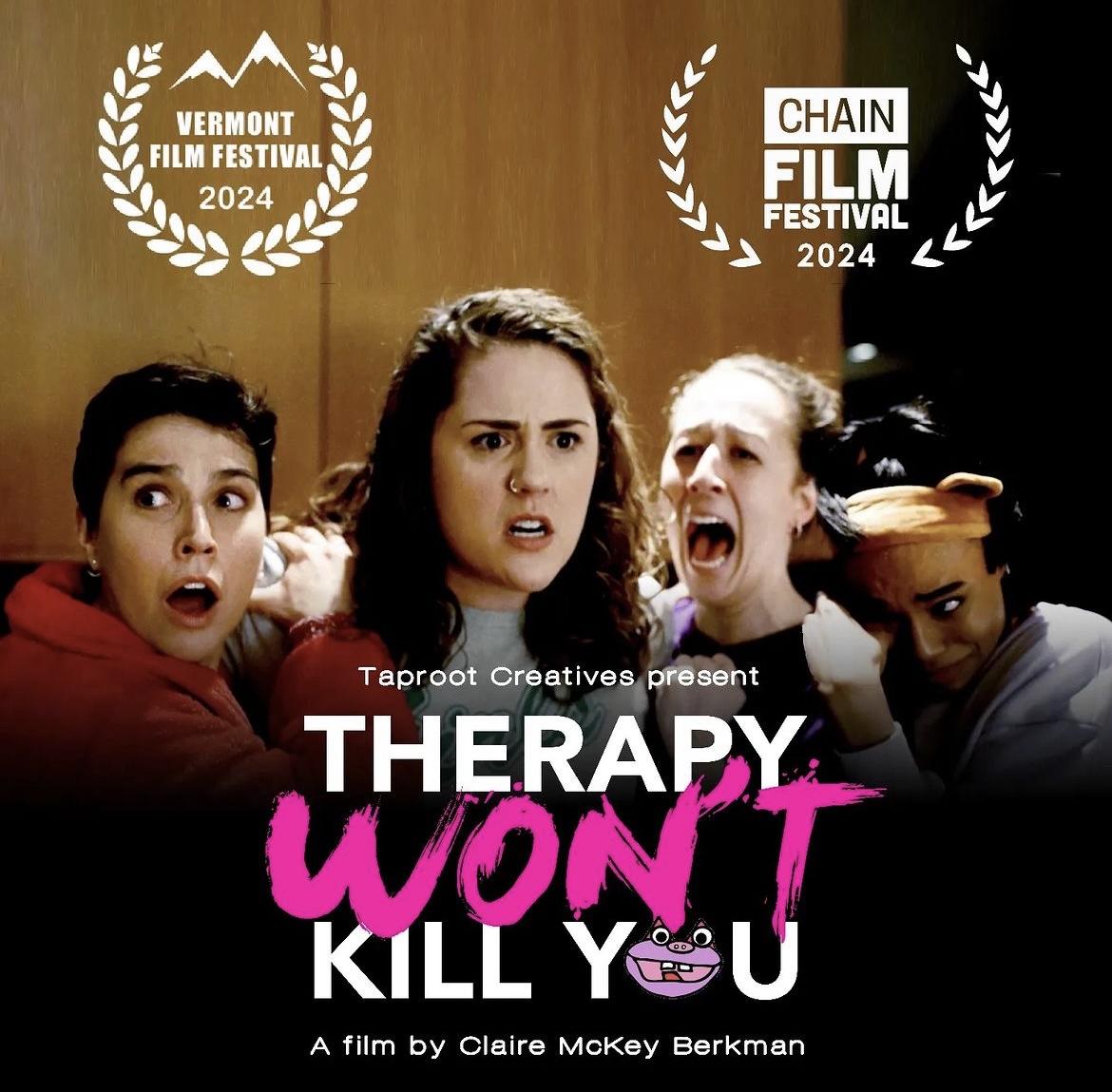
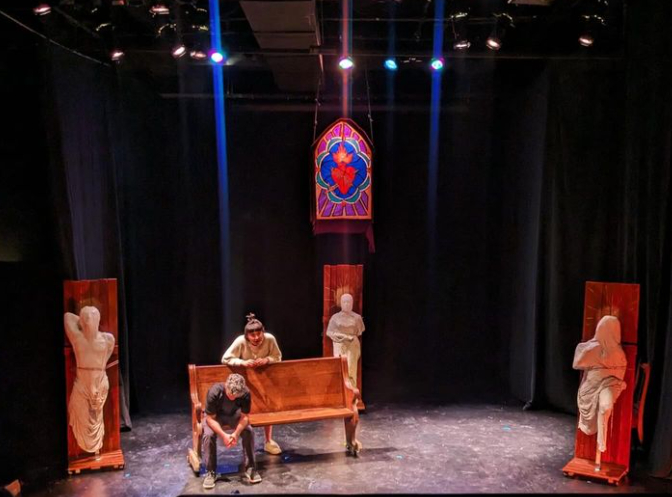
Learning and unlearning are both critical parts of growth – can you share a story of a time when you had to unlearn a lesson?
I had to unlearn the definition of success I’d ingested throughout my education in theater all the way through my MFA in Acting. It seems most of my training was very focused on teaching us how to become commercially successful actors in the sense of making all of our money solely from acting. whether that be booking consistent theater gigs or getting enough TV/film work to pay the bills. Don’t get me wrong, there is certainly nothing wrong with that. In fact, I applaud actors who make it to that rarified point: it takes a hell of a lot of tenacity, hard work, and skill to get there. But it is certainly not the only form of success. And this myopic view of success is definitely not just the fault of theater education, it’s also part of our society (maybe celebrity culture is to blame). For example, often when you tell someone you’re an actor the first response you get is ‘what have I seen you in?’. Now most of us actors dread this dastardly question because nine times out of ten, the person asking it has no idea how difficult (and sometimes impossible) it is to get to the point where they might’ve seen you in something on TV. And if you happen to be one of those actors that actually has an answer to that question, eight times out of ten it’s for 2 lines in a scene of Law and Order that (mercifully) wasn’t cut in post. Getting those two lines on Law and Order is certainly no easy feat. Again, no shade to this type of success, but a little shade to the fact that I was practically brainwashed into believing that’s what I wanted for myself and that it was the only legitimate form of success. It took me years to discover that that track wasn’t making me happy at all, it was making me miserable. It took me even more time to realize that even the best case scenario of that track (where I get all the TV roles and theater gigs I need to pay my bills) would also make me miserable. So why keep working towards something where the end game was misery? I had to redefine success for myself. Okay, if success doesn’t mean making all my money from acting or becoming a recognizable face and name on TV or in film, then what does it mean? It turns out what it means to me is making work I’m passionate about with people I like and respect and being proud of the quality of work we produce together.

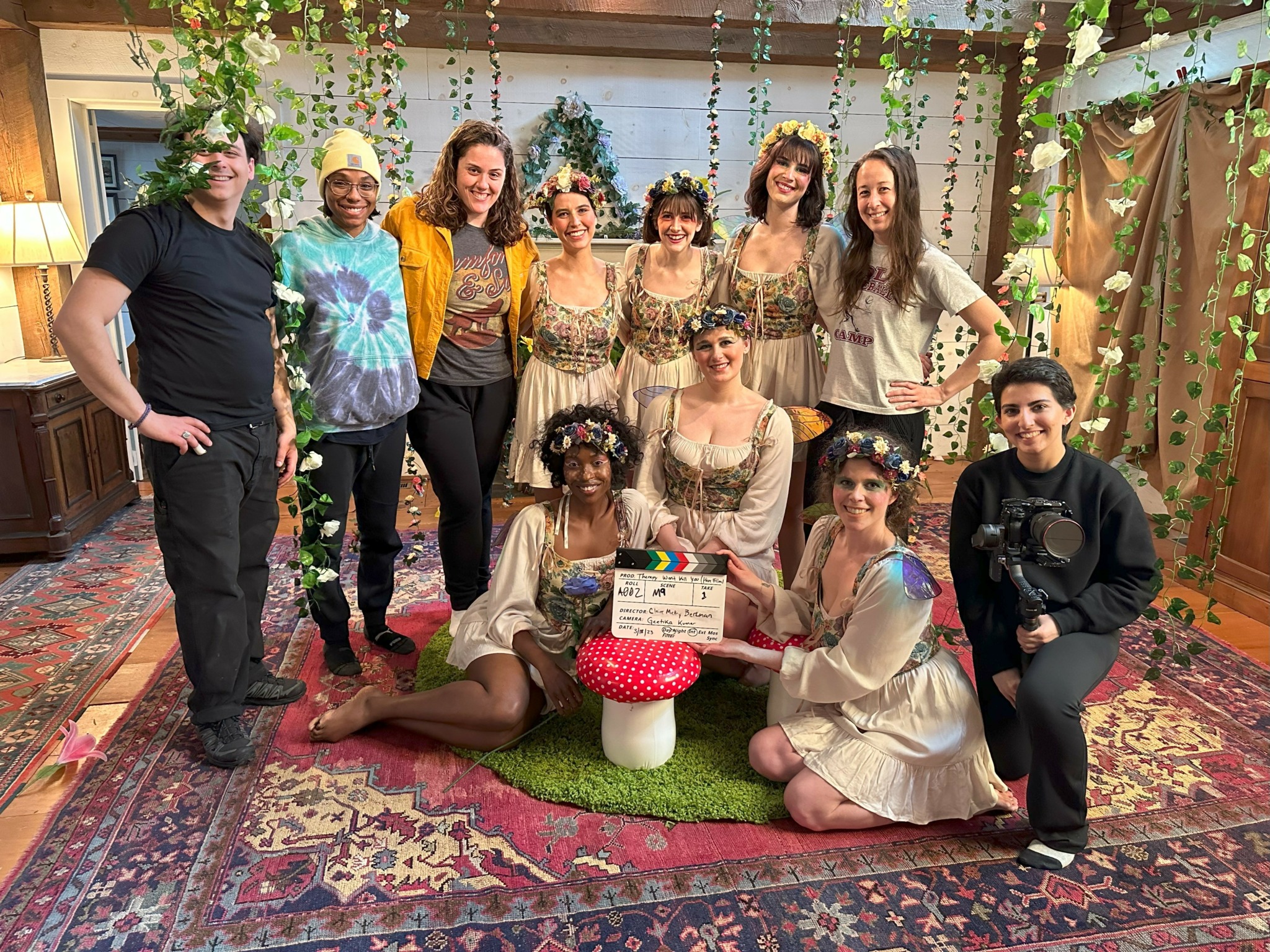
For you, what’s the most rewarding aspect of being a creative?
I think the most rewarding aspect is making the work with other people. It’s rare as an adult in our hyper-individualist culture to find yourself working towards something with a group of people where you all care deeply about the outcome, where you’re in it together come hell or highwater. The types of bonds we create in rehearsal and collaboration is truly a special thing. When we encounter issues, we’re obliged to work through them together to find solutions and that creates deep relationships and mutual care that lasts well beyond each individual project. Basically you create family and togetherness in your work and I really can’t think of anything more rewarding than that.
Contact Info:
- Website: https://taprootartists.wixsite.com/taprootcreatives
- Instagram: https://www.instagram.com/taproot_official/
- Facebook: https://www.facebook.com/profile.php?id=61555474656809
- Twitter: TaprootCreative
- Youtube: https://www.youtube.com/@TaprootCreatives
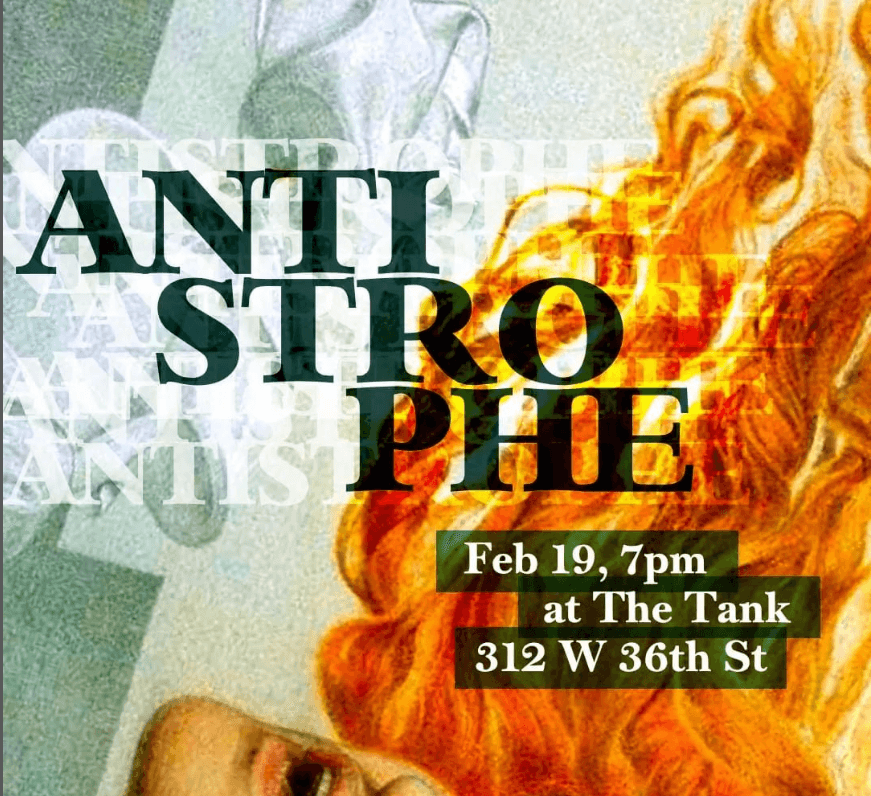
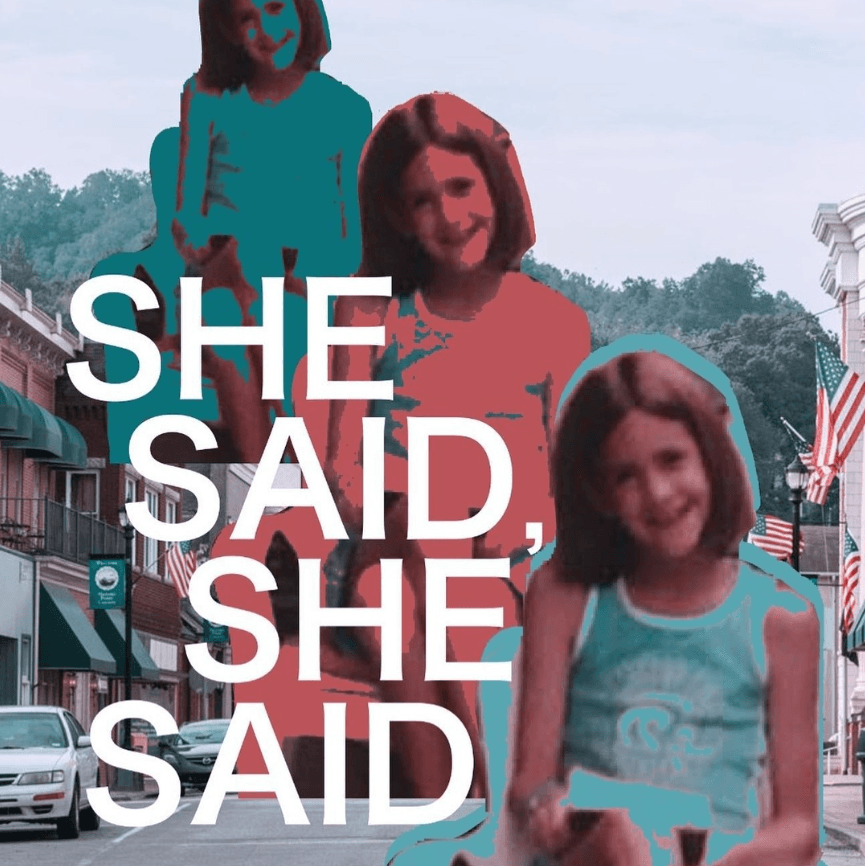
Image Credits
Without God As My Lover poster by Aurélien Bayo.
Antistrophe, She Said, She Said, and Therapy Won’t Kill You posters by Sarah Cuneo


